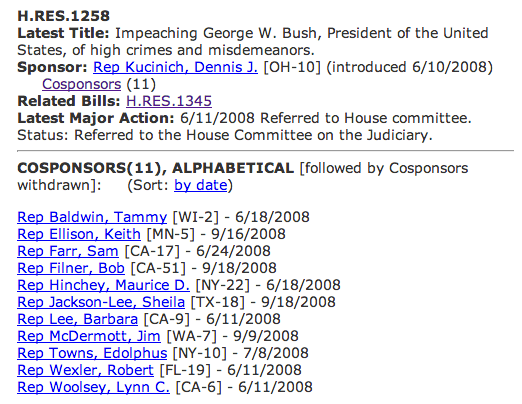In 1994, Colombian soccer player Andres Escobar was murdered after accidentally scoring a goal for the opposing U.S. team in the World Cup. For some reason, I was reminded of that story after learning that Washington Post blogger Greg Sargent, a big ObamaCare fan, has scored a big goal for conservatives in the Halbig case — by unwittingly advancing the arguments of the Halbig plaintiffs who oppose subsidies on federal exchanges.
Sargent started out really excited by his find, bless his heart. Look at his headline: Senate documents and interviews undercut ‘bombshell’ lawsuit against Obamacare. Isn’t that sweet?
Sargent helpfully traces the origin of the “established by the state” language in the PPACA, explaining that the Senate HELP Committee passed a version of health reform that provided for Affordable Health Benefit Gateways — something like an ObamaCare exchange. Sargent links a memo that explains, among other things: “Until a state becomes either an establishing or participating state, the residents of that state will not be eligible for premium credits.” (Premium credits are tax credits or subsidies. Remember this part, because it becomes important later.) Additionally, under the HELP Committee proposal, when the federal government set up fallback exchanges for states that had not set up their own, plans obtained on those federal exchanges would be eligible for subsidies. This is key: there was an explicit provision wherein subsidies were provided on the federal exchanges.
Later, in 2009, the Senate Finance Committee passed a version of the PPACA. For the first time, the phrase “established by the state” appeared in the law, but in this initial version there were no federal exchanges. In late 2009, the two bills were merged, and according to a staffer:
[W]e layered the HELP Committee language that established a federal fallback on top of the Finance Committee language that included ‘exchange established by the state.’
Here’s the problem that many conservatives have already identified: when the bills were merged, the HELP Committee bill’s explicit provision that subsidies were available on federal exchanges was dropped. Since Sargent’s post was published, several conservatives have convincingly argued that, applying standard rules of statutory construction, the disappearance of the provision allowing federal subsidies signifies that the drafters intended to drop it. The argument has been made by Jeff B. at Ace’s, Leon Wolf at RedState, and elsewhere. Baseball Crank gives you the basic argument in a concise tweet:
If Congress initially put specific language in the bill providing for subsidies on federal exchanges, and later took that language out, it’s assumed to be deliberate. Ouch!
But it gets even worse for Sargent. I’ve not seen anyone make this point yet, but Sargent has actually directly corroborated an argument made by the majority opinion in Halbig. Here is the Halbig opinion, and here is the key passage:
The government and its amici are thus left to urge the court to infer meaning from silence, arguing that “during the debates over the ACA, no one suggested, let alone explicitly stated, that a State’s citizens would lose access to the tax credits if the State failed to establish its own Exchange.”
The historical record, however, belies this claim. The Senate Committee on Health, Education, Labor, and Pensions (HELP) proposed a bill that specifically contemplated penalizing states that refused to participate in establishing “American Health Benefit Gateways,” the equivalent of Exchanges, by denying credits to such states’ residents for four years.
This is not to say that section 36B [the section of PPACA that provides for subsidies] necessarily incorporated this thinking; we agree that inferences from unenacted legislation are too uncertain to be a helpful guide to the intent behind a specific provision.
But the HELP Committee’s bill certainly demonstrates that members of Congress at least considered the notion of using subsidies as an incentive to gain states’ cooperation.
Conservatives discussing Halbig have argued that the “established by the state” language was designed to provide an incentive for states to establish exchanges — by withholding subsidies unless the states established the exchanges. Lefties like Sargent say that theory was cynically concocted after the fact. But the Halbig court said, in essence: no, actually, it is not outlandish to think that Congress might have intended to withhold subsidies as an incentive for states to establish exchanges. After all, the HELP Committee did exactly that, in related legislation. The only thing that keeps this from being a slam dunk argument is, we can’t establish a direct connection between the HELP Committee legislation and the language in the PPACA.
But Greg Sargent just did.
The Halbig majority couldn’t say that the provision for subsidies “necessarily incorporated” the thinking of the HELP Committee. Now, thanks to the work of Greg Sargent, the Halbig plaintiffs can argue exactly that — because now we know that the language of PPACA was taken directly from the HELP Committee proposal.
It’s not every day that a lefty ObamaCare fan hands a huge cudgel to opponents of the law. Thanks, Greg!
Just . . . watch your back, buddy. Andres Escobar, the Colombian soccer player, paid a heavy price for his “own goal.” Sargent faces a crowd that is arguably more ruthless than the Colombian soccer fans: the pro-Obama hard left. Shudder. I’d hate to be in Sargent’s shoes right now.
P.S. The Fourth Circuit opinion that ruled the opposite of Halbig, holding that subsidies are available on federal exchanges, dismissed the HELP Committee proposal in a footnote (footnote 3), saying that the plaintiffs put too much emphasis on it. Now that we know the HELP Committee proposal was a precursor to the very language at issue, future courts will have a tougher time dismissing the example with an airy wave of the hand.
UPDATE: Thanks very much to Instapundit for the link. New readers, please bookmark the main page and keep coming back!




